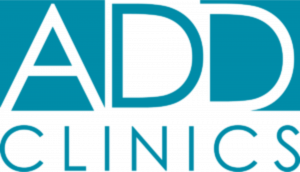
Distinguishing Energetic Behavior from ADD in Children: What Parents and Educators Need to Know
According to Dr. Stanford Owen, a physician and founder of ADD Clinics in Gulfport, Mississippi, distinguishing ADD from general high-energy involves a multi-layered evaluation of behavior, consistency across settings, and the level of functional impairment.
“ADD is a neurodevelopmental condition characterized by persistent difficulties with attention, focus, and self-regulation,” said Dr. Owen. “While all children display high energy at times, ADD affects daily performance in a measurable and lasting way across multiple environments. When it continues into adulthood (over 15), it is quite annoying and prevents school, employment, and even personal relationships.
People with high energy ADD often show short-term bursts of restlessness or impulsiveness. These behaviors are typically manageable, occur in response to specific stimuli, and can be redirected through structured routines or changes in environment. In contrast, adults with hyperactive ADD display long-term patterns of inattention, disorganization, and impulsivity that are not resolved by routine counseling or behavioral management strategies.
Diagnosis of ADD is not based on a single observation or event. It requires a comprehensive assessment involving behavior checklists, academic history, and reports from caregivers, teachers, or employers. The evaluation considers whether the symptoms are present in more than one setting—such as at home and at work—and whether the behaviors impair performance, social interaction, or daily functioning.
The condition presents in different forms. Some primarily exhibit hyperactivity and impulsiveness—such as frequent interruptions, excessive talking, or difficulty remaining seated. Others may exhibit primarily inattentive symptoms—such as forgetfulness, distraction, or difficulty following instructions—without the outward signs of hyperactivity. This inattentive presentation is often underdiagnosed, especially in girls, due to the lack of disruptive behavior.
Environmental and medical factors are also reviewed during the diagnostic process. Conditions such as sleep disorders, hearing problems, anxiety, depression, or learning disabilities can mimic ADD symptoms and must be ruled out to avoid misdiagnosis. In some cases, a combination of conditions may be present and require an integrated treatment approach.
ADD is a neurological condition, not a reflection of character or discipline. People with ADD often want to perform well and meet expectations but struggle due to underlying executive function deficits. These challenges can lead to repeated failure, frustration, and low self-esteem if left unaddressed.
Dr. Owen emphasized the importance of early identification. “Children with untreated ADD often fall behind academically and socially. Early recognition allows for targeted interventions that improve outcomes and reduce long-term complications. Adults with hyperactive ADD often have legal trouble, employment failures, and financial difficulties.
Management of ADD varies depending on the severity and specific needs of the individual. Treatment options may include behavioral therapy, academic accommodations, work accommodations, and when appropriate, medication. Collaboration between families, healthcare providers, and employers is often necessary to implement consistent strategies across home and work environments.
Early support can positively influence the child’s ability to focus, follow directions, complete tasks, and interact appropriately with peers. For many children, appropriate treatment leads to improvements in both academic performance and emotional well-being. In Dr. Owen’s experience, those children treated properly and early are SHOCKINGLY better off than those untreated. He uses the word “shockingly” because it is hard for skeptics to really understand the degree of misery and disability these individuals suffer.
Awareness of ADD symptoms can also help prevent common misinterpretations. Without understanding the condition someone may be mistakenly viewed as defiant, lazy, or disinterested. This can lead to disciplinary action rather than constructive support. Recognizing ADD as a medical condition allows family, friends, and employers to respond with strategies tailored to individual needs.
At ADD Clinics in Gulfport, the focus is on thorough evaluation and evidence-based management. The clinic provides assessments for adults experiencing attention-related challenges and works to develop individualized care plans that address both academic and behavioral concerns.
While energetic behavior is a normal part of child development, persistent patterns that interfere with function deserve closer attention. Differentiating between energy and ADD is not always easy, but it is an important step in ensuring that children receive appropriate guidance, support, and opportunities for success.
Understanding the signs, seeking proper evaluation, and implementing informed strategies are essential components in addressing attention difficulties. With accurate information and timely action, people facing ADD can develop the skills needed to thrive in the classroom and beyond into the workforce.
Morgan Thomas
Rhino Digital, LLC
+1 504-875-5036
email us here
Visit us on social media:
Facebook
Distribution channels: Culture, Society & Lifestyle, Education, Science
Legal Disclaimer:
EIN Presswire provides this news content "as is" without warranty of any kind. We do not accept any responsibility or liability for the accuracy, content, images, videos, licenses, completeness, legality, or reliability of the information contained in this article. If you have any complaints or copyright issues related to this article, kindly contact the author above.
Submit your press release

